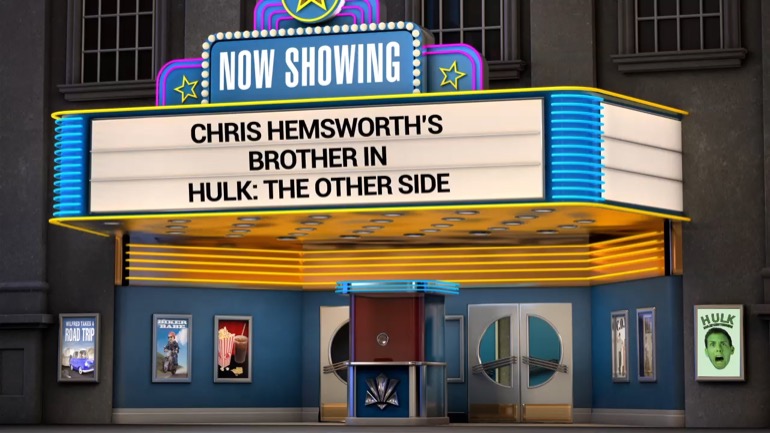ShmoopTube
Where Monty Python meets your 10th grade teacher.
Search Thousands of Shmoop Videos
Econ Videos 79 videos
What is a Production Possibilities Curve? The Production Possibilities Frontier Curve (PPF) is a statistical graphic curve that depicts the compari...
What are Income and Substitution Effects? Income effects reflects the increases or decreases in total consumption of goods and services in proporti...
How Do Companies Add Value? Companies add value by improving the client or customer experience. This can be achieved by offering better quality ser...
Econ: What is the Federal Budget? 0 Views
Share It!
Description:
What is the Federal Budget? The Federal budget is the US government’s list of spending allocations for a designated year. It includes domestic and international obligations, personnel payrolls, materiel, and aid, inclusive of military and other government departmental operations. It is negotiated on and proposed by Congress and is then presented to the President for veto and/or signing.
Transcript
- 00:00
And finance Allah shmoop What is the federal budget And
- 00:06
no it's not an oxymoron Okay people sing it with
- 00:09
me I am the very model of a modern budget
- 00:12
Federal cost trillions Whether Congress is conservative or liberal that's
- 00:16
a four with twelve zeros for commas and no decimal
Full Transcript
- 00:19
Most funds come from income taxes both corporate and individual
- 00:23
Ah third from payroll tax is blah blah blah OK
- 00:26
at the music Air people boy Yeah that was Gilbert
- 00:29
and Sullivan Ask your great grand parents about that one
- 00:31
Anyway Here's the money that comes in from the federal
- 00:34
government It's what they spend We've got forty seven percent
- 00:37
from personal income taxes That's like revenue to government on
- 00:40
our backs Those air the tax returns you have to
- 00:43
file of recorder and then finally every April fifteenth Then
- 00:47
there's another nine percent of federal revenue that comes from
- 00:49
corporate taxes Basically income taxes for Cos The next big
- 00:54
chunk comes from payroll taxes yet another tax on corporations
- 00:58
It makes up about a third of the federal government's
- 01:00
revenue And that's the money that's earmarked or tagged for
- 01:03
Social Security that while you and your employer page time
- 01:07
you get your paycheck Well then you've got some little
- 01:09
stuff that trickles in You've got tariffs and small stuff
- 01:12
that doesn't really add up to a whole lot anyway
- 01:15
So that's how the money comes in Those bear the
- 01:17
revenues that run our government members of Congress I'll figure
- 01:20
out what they want to spend money on Basically once
- 01:22
they make a deal they need to get the president
- 01:24
to sign off on it And if it's a big
- 01:26
budget item and basically that's how budgets get made So
- 01:30
how does the federal government spend our money Well three
- 01:33
fifth of the total budget goes to social programs that
- 01:36
stuff like Social Security the unemployed Medicare Medicaid and all
- 01:41
those types of programs Three fifth that sixty percent of
- 01:44
our total budget goes for all this stuff Right down
- 01:47
here we were listing for you They're for free After
- 01:49
that well about a sixth of the budget goes to
- 01:51
the military Another six percent gets spent on debt service
- 01:55
That's just paying the interest expense on the bonds the
- 01:58
U S Government has issued to make up for its
- 02:01
deficit spending What is deficit spending It means that when
- 02:04
we do our budget we take in less money than
- 02:08
we spend So we have a deficit or earnings losses
- 02:12
If we record operation basically year after year after year
- 02:15
and we have to borrow money to make up for
- 02:18
the annual massive losses Yeah runs a company like that
- 02:22
All right well let's look a little closer The federal
- 02:24
government spending here there's too broad categories that spending falls
- 02:27
into There's mandatory spending and that stuff that's been budgeted
- 02:31
by previous legislation lease already been committed to Contractually we
- 02:35
have to spend the money There's no optionality here It's
- 02:38
set in stone is part of the social programs the
- 02:40
so called entitlements you hear about in the press all
- 02:43
the time You know stuff like Social Security unemployment Medicare
- 02:47
Medicaid And if we don't spend that money for all
- 02:49
the old people who are sick and miserable and dying
- 02:52
while they would be even sicker and more miserable and
- 02:54
dying faster so we have to spend that money The
- 02:57
other big part of the federal budget is called discretionary
- 03:00
spending This is also stuff that lawmakers can negotiate on
- 03:03
a year to year basis The biggest part of the
- 03:05
discretionary budget is the military well The budget also includes
- 03:09
benefits for veterans and that's like stuff like Gil mental
- 03:12
care for people who did one hundred ninety seven jumps
- 03:15
into Afghanistan and now have PTSD It's also people who
- 03:18
got Lim shot off defending our country So they call
- 03:22
that discretionary But it really isn't There's a number of
- 03:24
other smaller expenses that fit into this part of the
- 03:26
budget There's money for housing money for education money for
- 03:30
international aid pretty much anything else But it's important to
- 03:34
remember that the mandatory spending and the military make up
- 03:37
the biggest part of the Total Budget III What we
- 03:39
spend more money on ad in the service on the
- 03:42
dead I'ii interest payments and all of that Together those
- 03:45
programs equal eighty two percent of the federal budget OK
- 03:49
about those debts Well each year the government out spends
- 03:52
its revenue like we said and that's what's called our
- 03:54
deficit spending here So to make up for this the
- 03:56
government has to borrow more and more and more money
- 03:59
And it does so by issuing bonds T bills chinos
- 04:02
long bones all that kind of stuff Every year these
- 04:04
additional deaths get thrown onto the ever growing pile of
- 04:07
debt And this is what's called the national debt Right
- 04:11
You see signs that calculate our national debt how fast
- 04:14
it's growing and all that Well as of press time
- 04:16
right now that total national debt tops twenty one trillion
- 04:21
dollars and it's growing all the time All right so
- 04:23
let's go out on a big finish here Ready Oh
- 04:26
I am the very model of a modern budget federal
- 04:28
iris Men in black make sure revenue states accountable Spending
- 04:32
mandatory These things they say are not negotiable Discretionary choosing
- 04:36
stuff by mainly troops and generals Don't forget interest charges
- 04:40
These things are not ephemeral Sorry we're almost done here
- 04:43
to pay for this We run up debts that some
- 04:45
might call incredible To keep this up we better keep
- 04:47
our credit rating credible and pray to pay for all
- 04:51
the programs running within the state Several I am the
- 04:54
very model of a modern budget federal who feeling a
- 04:57
little lightheaded here All right I think I'll just light 00:05:00.153 --> [endTime] out for a second federal budget Good luck
Related Videos
GED Social Studies 1.1 Civics and Government
What is bankruptcy? Deadbeats who can't pay their bills declare bankruptcy. Either they borrowed too much money, or the business fell apart. They t...
What's a dividend? At will, the board of directors can pay a dividend on common stock. Usually, that payout is some percentage less than 100 of ear...
How are risk and reward related? Take more risk, expect more reward. A lottery ticket might be worth a billion dollars, but if the odds are one in...



















































































